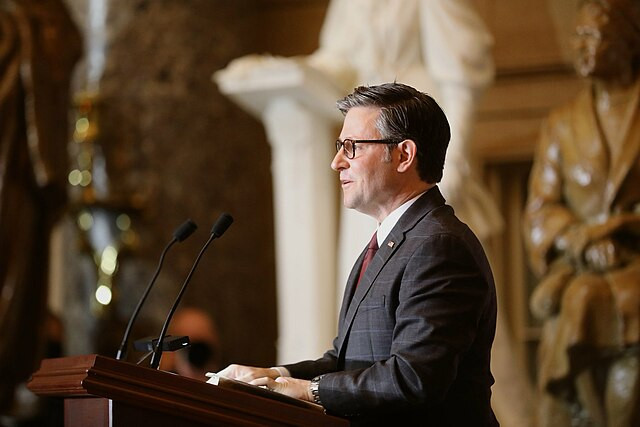In the eleventh hour of tense negotiations, House Republicans, led by Speaker Mike Johnson, reopened discussions with Democrats to prevent a looming government shutdown. The renewed talks followed the failure of Johnson's revised funding proposal on Thursday, which Democrats rejected en masse, citing a lack of consultation with House Minority Leader Hakeem Jeffries.
The renewed dialogue underscores the precariousness of the situation, with the federal government set to run out of funding by midnight Friday. Johnson and Jeffries have reopened communication lines, according to Democratic lawmakers who attended a caucus meeting earlier in the day. Jeffries told his party members he was doing "everything possible" to reach a resolution while ensuring the bipartisan principles initially agreed upon were upheld.
Jeffries praised his caucus for their unity in Thursday's vote, a move he said compelled Johnson back to the negotiating table.
The urgency was palpable in the House, as Republicans unveiled their fourth plan to fund the government. This proposal, expected to garner significant Democratic support, includes provisions for extending government funding until March 14, a one-year extension of the farm bill, and a $110 billion disaster aid package negotiated earlier with Democrats.
However, internal divisions within the Republican Party complicated the process. Members of the ultra-conservative Freedom Caucus pushed for separate votes on the funding bill, farm aid, and disaster aid, citing a need for fiscal scrutiny. Farm district Republicans opposed this approach, fearing farm aid might not pass independently. Ultimately, the party coalesced around a unified package to be voted on Friday afternoon, with Johnson expressing confidence in the proposal's passage.
"We will not have a government shutdown," Johnson told reporters. He assured the public that critical services, including military pay and disaster relief, would continue uninterrupted. However, he remained non-committal when pressed about whether the plan had the support of former President Donald Trump, who has been vocally opposed to recent funding compromises.
Democrats, meanwhile, signaled cautious optimism but withheld full endorsement until the plan's details were released. Jeffries met with centrist Democrats to gauge their readiness to compromise, mindful of constituent pressures. A Democratic lawmaker, speaking anonymously, expressed conditional support, provided the final text aligned with bipartisan objectives.
Adding to the complexity, Republican leaders are also grappling with the upcoming debt ceiling crisis. During a closed-door meeting, they proposed a plan to raise the debt ceiling by $1.5 trillion next year while implementing $2.5 trillion in cuts to mandatory spending. This strategy, intended to bypass immediate bipartisan negotiations, defies Trump's insistence on addressing the issue before his January inauguration.
Trump has repeatedly criticized Congress for not resolving the debt ceiling in advance. "Congress must get rid of, or extend out to, perhaps, 2029, the ridiculous Debt Ceiling," Trump posted on social media Friday morning.
The debt ceiling debate highlights broader Republican divisions over fiscal policy. Some lawmakers favor targeting mandatory spending, such as Social Security and Medicaid, while others advocate cuts to discretionary programs. These internal disputes raise questions about the GOP's ability to present a united front in the months ahead.






